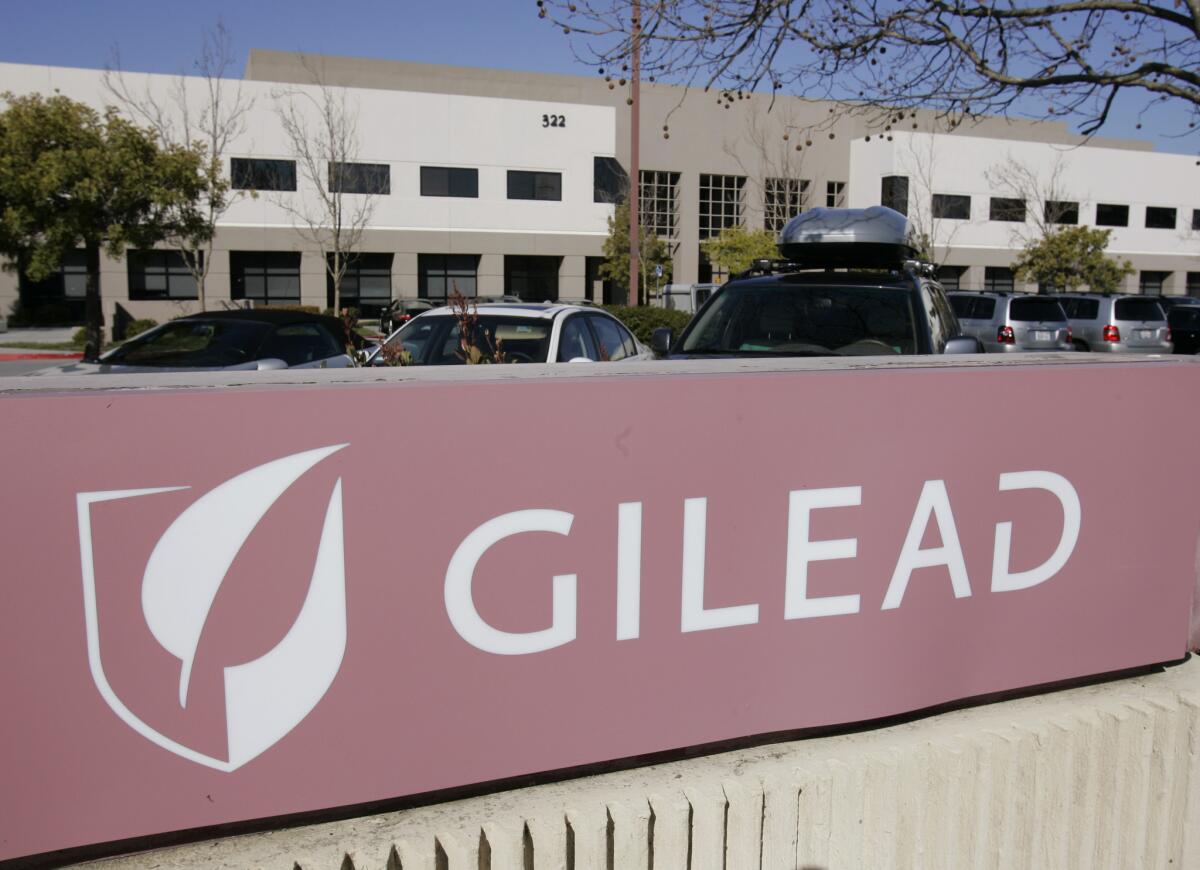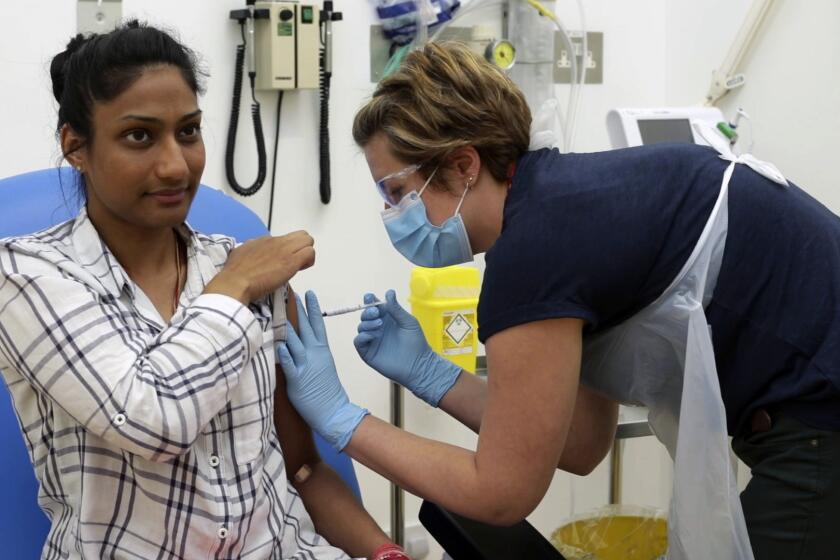Gilead prices coronavirus drug remdesivir at $2,340 for five-day treatment

Gilead Sciences Inc. said it would charge the U.S. government and other developed countries $390 per vial for its coronavirus-fighting drug remdesivir, or about $2,340 for a typical five-day course of treatment.
Gilead said in a statement Monday it would offer this price to developed countries around the world, in order to create a one-price model that would avoid the need for country-by-country negotiations that could slow down access.
“We wanted to make sure that nothing gets in the way of remdesivir getting to patients,” Gilead Chief Executive Officer Daniel O’Day said in an interview. The price “will make sure all patients around the world have access to this medicine.”
The $390 per vial price is for government entities. Once supply is less tight and Gilead starts selling the drug in normal distribution channels, the list price for private insurance companies and other commercial payers in the U.S. will be $520 a vial, or $3,120 for a five-day course.
History tells us that rushing a vaccine for COVID-19 will prove more hazardous than if it’s done right.
Remdesivir is one of the first widely used drugs for COVID-19. It received an emergency use authorization from U.S. regulators in May after a big trial found the medicine sped recovery by about four days in hospitalized patients. Hundreds of treatments and vaccines are in development around the globe as researchers race to find ways to halt a global pandemic that’s infected over 10 million people and killed more than 500,000.
Gilead had promised to donate its supply of the drug through June, but what the company would charge after the donation ran out had been furiously debated. The drugmaker’s pricing decision is consequential because it sets a precedent for how much future medicines for COVID-19 may cost.
Creating a vaccine capable of preventing the coronavirus that causes COVID-19 will take many months — if not a year or more. These are the steps involved.
The company suggested it could have charged more based on the value the medicine provided, the typical approach drugmakers use in setting pricing for new and innovative therapies. It argued remdesivir could save $12,000 per patient by getting people out of the hospital faster. But it went with a lower price to make sure that all developed countries could afford it.
Shares of the Foster City, Calif.-based drugmaker gained 1.6% to $75.75 in premarket trading Monday in New York. Through Friday, Gilead shares had gained 15% so far this year.
Gilead also said Monday it had reached agreement with the Department of Health and Human Services to manage the allocation of remdesivir in the U.S. through September.
The coronavirus crisis in the U.S. is escalating as new cases of infection reach record highs. States such as Texas, Arizona and Florida are becoming overwhelmed, and plans to reopen their economies are being reversed.
Some estimates have found that remdesivir would be cost effective at as much as $4,500 for a treatment course. Other advocates, including consumer-rights group Public Citizen, have said the drug should just cost $1 a day based on calculations that it could be manufactured at scale by generic drugmakers for this amount.
In the interview, O’Day said $1 per day was “not a realistic price point.”
Six vials of remdesivir are used during a five-day treatment. But a minority of patients need 10 days of treatment, or 11 vials, which would bring the total cost up to $4,290.
To date, Gilead has donated about a quarter of a million treatment courses of remdesivir, and it is bolstering supply rapidly. By the end of the year, it expects to produce around 2 million treatment courses.
O’Day said pricing of the drug was a balancing act. On the one hand, a pandemic is raging for which there is no cure. On the other hand, the company is a for-profit entity that has made enormous investment into manufacturing large quantities of the medicine quickly as well as developing new, easier-to-administer versions.
More to Read
Inside the business of entertainment
The Wide Shot brings you news, analysis and insights on everything from streaming wars to production — and what it all means for the future.
You may occasionally receive promotional content from the Los Angeles Times.











